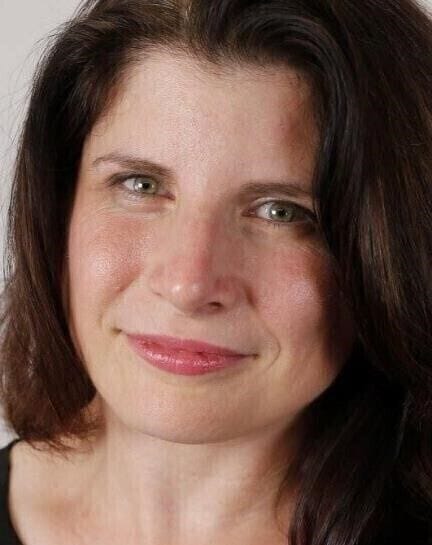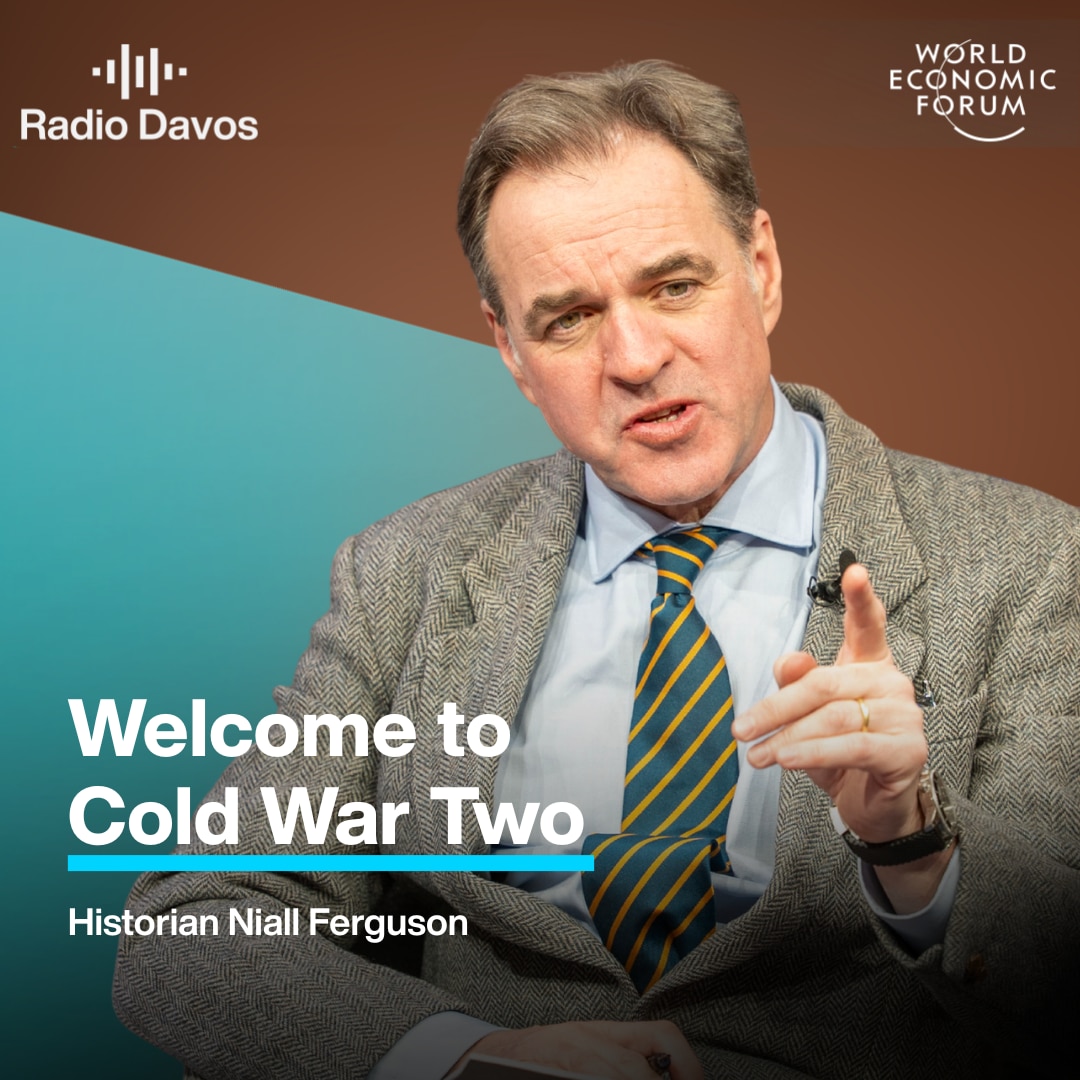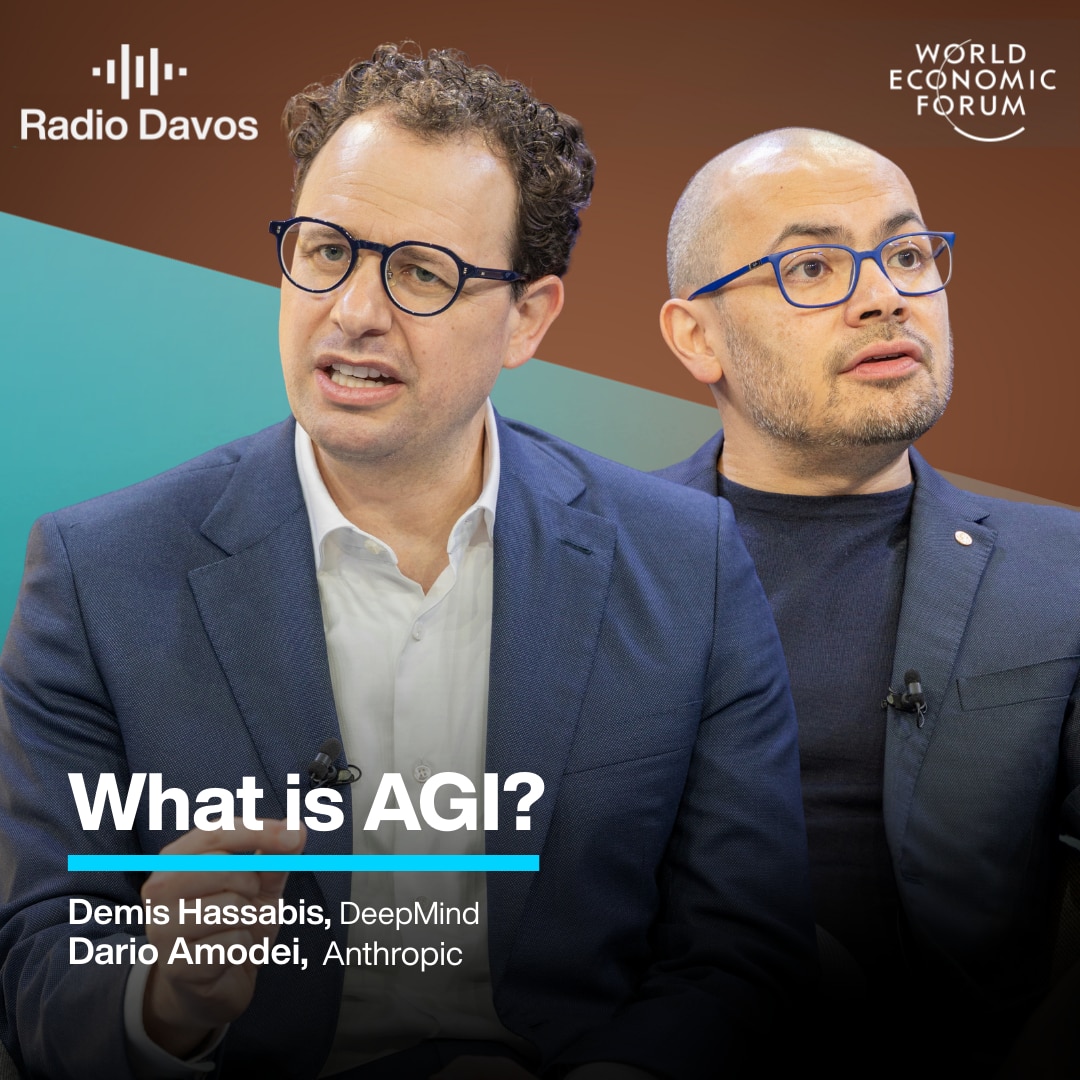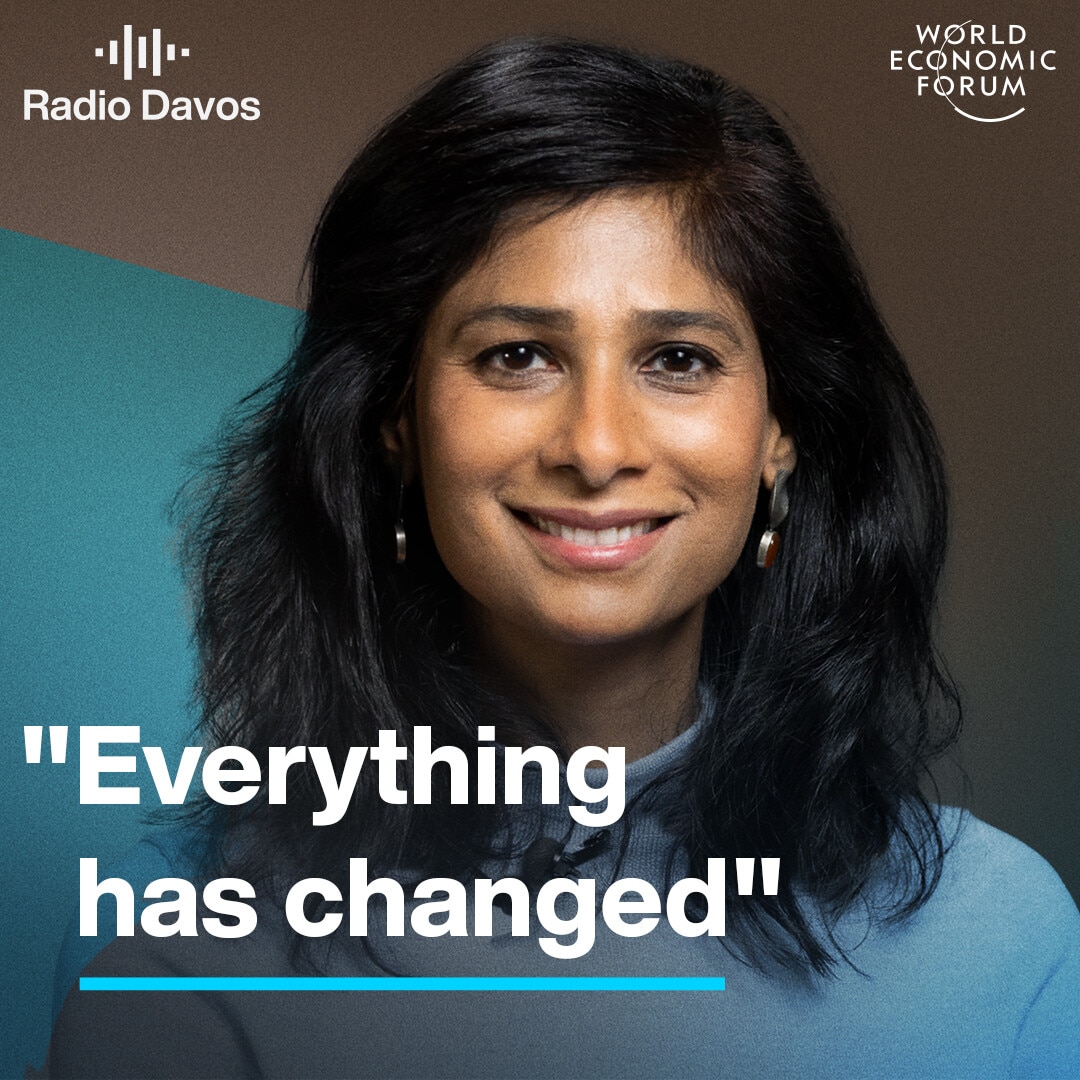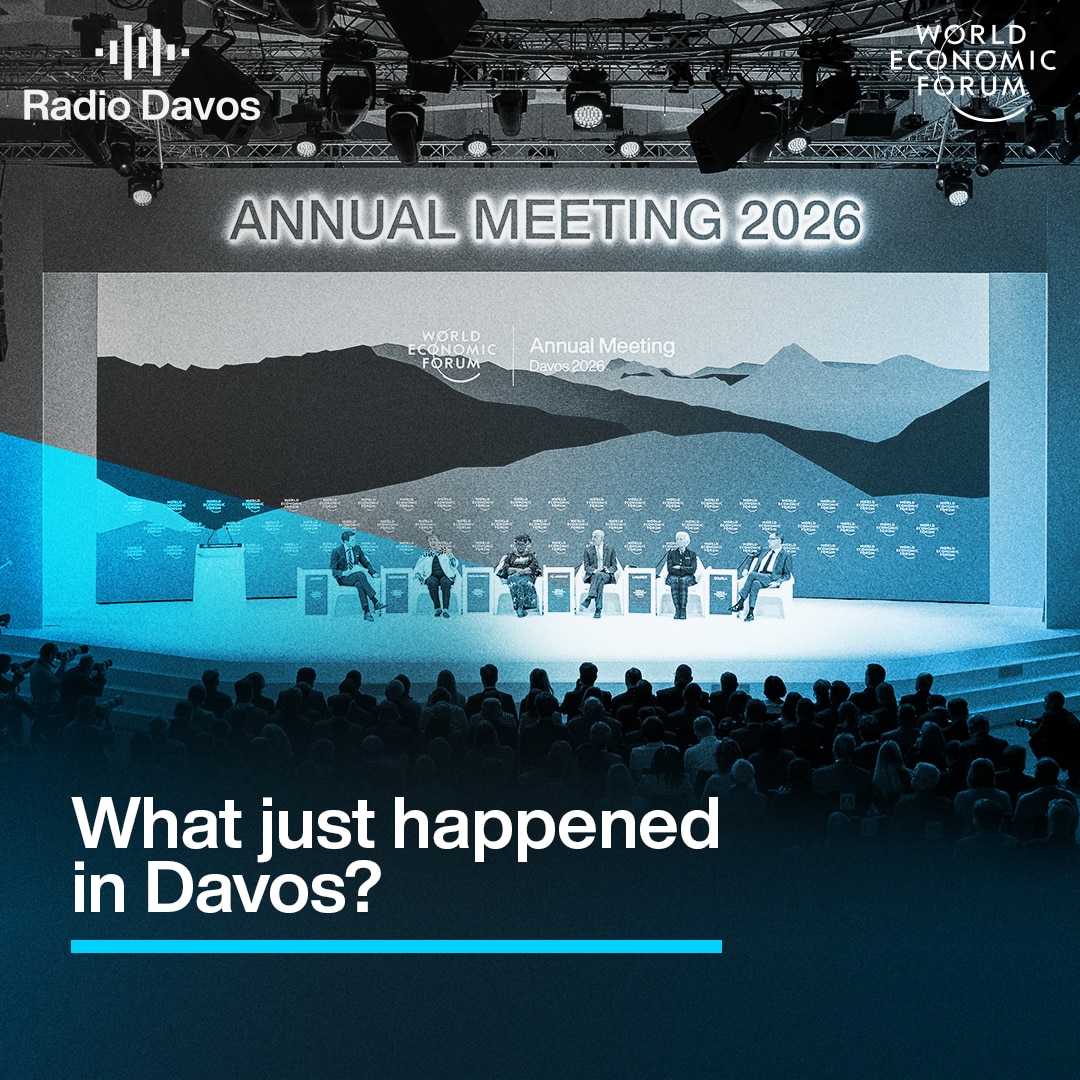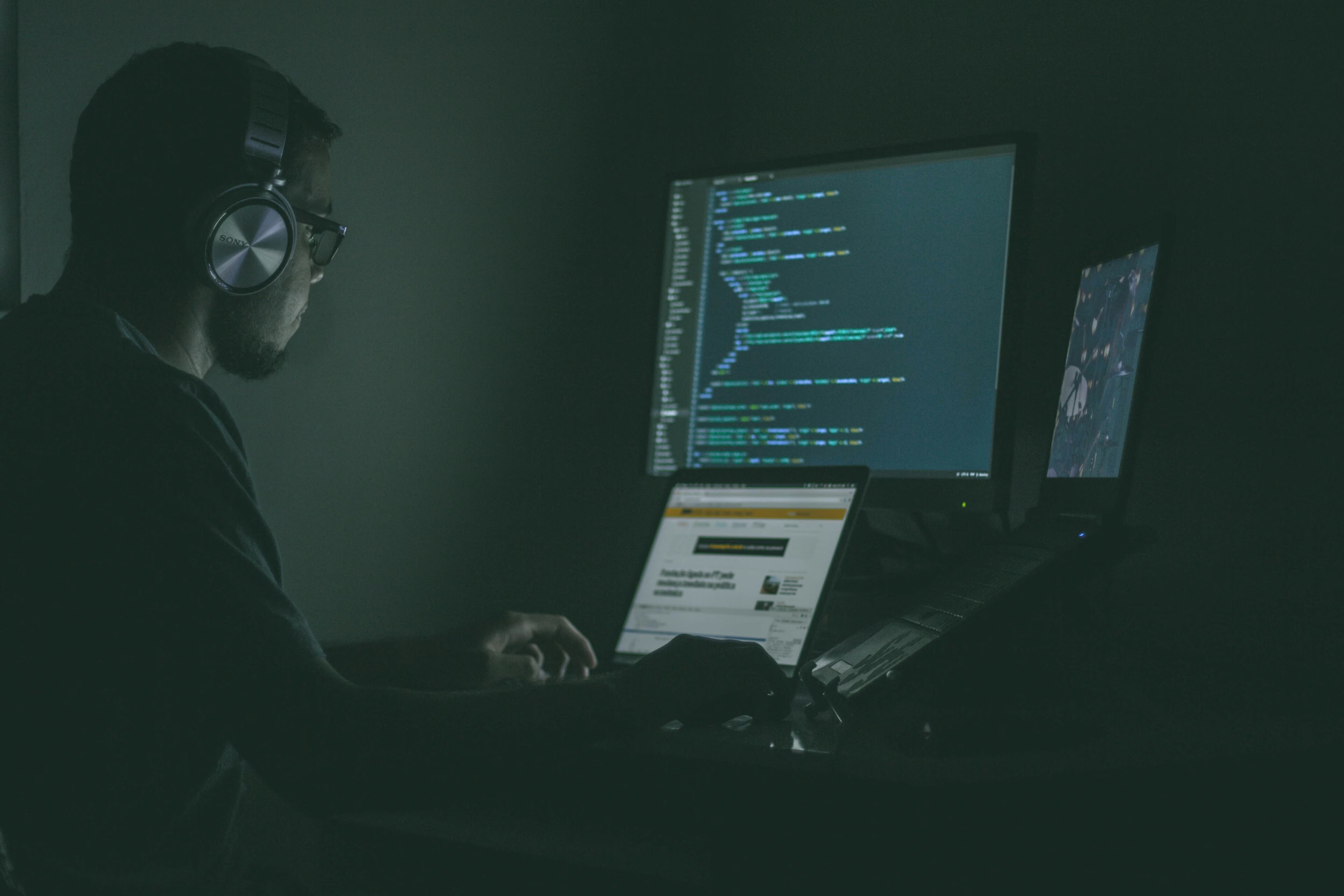A music superstar, romance fraud, and life-changing advice: highlights from the Forum's podcasts in 2024
Transcripción del podcast
Robin Pomeroy: Welcome to Radio Davos and this special episode to mark the end of the year to join me to look back on 2024 is my colleague and fellow podcaster, the host of Meet the Leader, Linda Lacina. Hello, Linda. How are you doing?
Linda Lacina: Hi Robin.
Robin Pomeroy: How are you doing?
Linda Lacina: Very good, very good, very good. It's holiday times here in New York so can't complain.
Robin Pomeroy: I'm delighted to have you here. If anyone listens to Radio Davos, they should also be listening to Meet the Leader. I mention it in every episode.
Whereas Radio Davos looks at the world's biggest problems and how we can solve them, which can be anything from climate change, technology, inequality, anything you could mention, Linda's Meet the Leader is much more focused and coherent, wouldn't you say, Linda?
Linda Lacina: I think they're both focused and coherent. Both look at solving the world's problems. But Meet the Leader looks at one particular leader's perspective on how they are helping to solve these problems, where your podcast, and you tell me if I am correct or is incorrect, is looking at it more like with multiple voices and also sort of helping to break down what the problem is as well in a sort of a wider sense.
Robin Pomeroy: Yes, that sums it up pretty well, and both you and I will soon be heading up the mountain or you'll be coming to Europe first and then heading up the mountain to Davos.
Because Radio Davos doesn't come from Davos except for one week a year. I'm based in Geneva at the World Economic Forum. You're in New York with the World Economic Forum but we'll both be going up to the Annual Meeting, the thing that probably the World Economic Forum is best known for which is the meeting in Davos that kind of kicks off the year.
To look back on 2024, I've set you the task, Linda, of picking just three, I don't know how many episodes you did. These are both weekly podcasts. So I reckon we did probably each more than about 40 episodes over the year. You're just going to pick clips from three of your most interesting ones. I've done the same for Radio Davos.
This is from Davos, from the Annual Meeting 2024. You know, when you go up there, there's captains of industry, there's people from academia. And sometimes there are, you meet get to meet your heroes. And I did one, a little bit starstruck, when I met Nile Rodgers.
Now If you've heard of Nile Rodgers, you'll be gasping in amazement. If you've not heard of Nile Rodgers, you've definitely heard his music. He's written and produced songs for people like Beyoncé, Daft Punk, Madonna and David Bowie. He was there in Davos to receive a Crystal Award last year, which the Forum gives to artists who've gone above and beyond to improve the state of the world.
Well, we got to talking about the use of AI in music and in art in general. But I started by asking him what makes a great song?
Nile Rodgers: Here's something that my jazz tutor taught me. One day I was going out to do a gig. That's how I grew up, I used to do cover songs for money. And sometimes we were lucky and we could do original songs because in the old days, people liked original bands playing new music. That was the discovery engine, go to a club.
And one day I was taking a lesson, and my jazz tutor, he's never had a hit record in his life, but he saw that I was really upset this particular day and he asked me why. Because normally I'm so upbeat. And I said, well, look at these, like, lame songs I got to play tonight. And he says, Nile, don't you realise that they're all hit records? Why would you call them lame? I said, look, the first song I got to play tonight is Sugar Sugar by The Archies.
Robin Pomeroy: That was number one the day I was born in England by the way.
Nile Rodgers: Oh my God.
Robin Pomeroy: It's not the coolest song in the world, is it?
Nile Rodgers: So he said to me, he said, Nile, do you know that Sugar Sugar has been number one for about six weeks now? And I said, what has that got to do with it? He says Sugar Sugar is a great composition. I said, how can you call 'Honey do do do do do do. Oh, sugar, sugar.' How could you call that a great composition?
Here's the greatest lesson in my life. He says, because it speaks to the souls of a million strangers. And I went, oh my God. He just described an artist.
Robin Pomeroy: Linda, are you familiar with Sugar Sugar by the Archies?
Linda Lacina: I'm not sure.
Robin Pomeroy: OK, let's hear a bit of it and see if this jogs your memory.
[Music plays]
Robin Pomeroy: Yeah? Is that ringing any bells?
Linda Lacina: A classic.
Robin Pomeroy: Well, Nile Rodgers didn't think so. But, you know, his jazz teacher did. And I think the point he was trying to make there was that if something resonates with someone, it's touching their souls in a way. I think it was really interesting. It was bubblegum pop, but it took a composer, writer, musicians who could actually play their instruments.
These days, and I started to talk to Nile Rodgers about artificial intelligence, anyone with an internet connection can create a pop song or any kind of music.
You and I've played around with these bots, haven't we, Linda, creating music? So I did one today. I'm going to play you. I couldn't go in there and say, hey, artificial intelligence, create me something that sounds like Nile Rodgers and Chic or Sister Sledge or whatever, because there are some copyright guardrails, although a big argument as to where these get their, get the material they use to generate these things. So you say things like 70s, I think I said 70s disco pop song with chunky rhythm guitar, that's Nile Rodgers, female vocals, and this is what I got.
[Music plays]
Robin Pomeroy: There you go. This took about 20 seconds to generate.
And I said they had to the lyric of the song. Nile Rodgers made We Are Family by Sister Sledge. This one is, listen to this ... 'We Are AI-Generated Family.'
Linda Lacina: Nice, nice.
Robin Pomeroy: So anyone who's not played around with that bot, it's available free. You don't have to download anything. It took seconds. It cost nothing. They get that. I think minds blown for anyone who hasn't come across that already.
I've made another. Shall I play you another one as well? Here we go.
Linda Lacina: Absolutely.
Robin Pomeroy: You know?
As a friend of ours always says about these things, this is the worst version of this you'll ever use, right? In a year's time....
Linda Lacina: So Robin, are you gonna just play these when you just get ready in the morning?
Robin Pomeroy: No, I hope I never hear it again. No, I will put on We Are Family by Sister Sledge.
So as I say, I talked to Nile Rodgers about artificial intelligence. He's far from a Luddite on this. A little bit of what he had to say:
Robin Pomeroy: Do you use any AI tools yourself?
Nile Rodgers: I've not used to it yet, but I could easily think of the time.
Right now I work with Apple, and, because I'm an artist in residence, they would obviously like me to not only come up with projects of my own that are interesting so that they can help me bring those products to fruition. And when I say products, what I really am talking about is what I create, which is music.
So I would assume at some point in time that I would probably use it, but I certainly wouldn't use it to imitate somebody else with that. I mean, even now, people can't believe that we're still a 100% live band. So all the bands that you probably like, or if you have kids, all the bands your kids like are all on tape. They're all working with ProTools. They all have click tracks. Not Chic, we're completely live.
Robin Pomeroy: My ten year old daughter loves your music, by the way.
Nile Rodgers: Thank you. That’s cool. But the reason why I love being live is because that's my art form. But I don't criticise the people who aren't doing it that way. We just did a show two days ago and we made a couple of mistakes, and we laughed and we go, mistakes are part of live, and we turned it into part of the show.
Robin Pomeroy: Chic - completely live. So 2024, a highlight for me was seeing them live close to Geneva.
If you want to know more about the impact of AI not just on music, but also on movies and visual arts, please check out that episode of Radio Davos. It's called "AI versus Art: Will AI rip the soul out of music, movies and art or help express our humanity?" And for more on AI from the World Economic Forum, check out the AI Governance Alliance link in the show notes.
Linda, that was my first pick of 2024 from Radio Davos, what's yours?
Linda Lacina: My first pick actually is from IKEA or INGKA Group, which is their parent company.
And it is with the Chief People Officer there, Ulrika Biesèrt. And she is a really interesting person because she has worked there for like two decades. She is unique in that she has worked in every single aspect of that company. So everything that you can do with a global retailer, she's been in each of those departments.
So she has a really unique perspective, both on that company and also sort of like how you can leverage different types of skills for different opportunities and just how do you navigate your career.
And what I really liked about it, I asked her, as chief people officer, what's her advice? Like what's her advice for maybe young grads or anybody that's sort of navigating her career? And at the very heart of it, and you'll hear her say it in her own words in a second, but at the very heart of it, it was to really invest in getting to know yourself, because then you'll make better decisions.
And I always felt like that is a piece that is missing when people think about planning their career or sort of moving forward in anything. They get lost on the short term or they get lost on a title, but they're not really thinking about, who am I? What do I actually want? And what do I actually need? Because they don't know themselves.
Anyway, I will stop talking and we can have Ulrika explain in a much better sense.
Ulrika Biesèrt, Inkga Group / IKEA: Curiosity, open mindset, be prepared to learn. And unlearn. And I think that will be the biggest change with this generation is that they are constantly unlearning, relearning, upskilling. And so you need that curiosity and a learning mindset.
I think the most important (for not only young people, but the question was for young people) is to get to know yourself.
Who are you for real? And trying to be yourself at the greatest extent, because directly when you start to play your role, your energy is leaking. So that is one advice. That advice would be, if you can be very intentional what company you choose to work for. And in that, it becomes lead yourself. But you can't lead yourself in my experience if you don't know yourself.
So I would say specifically because we talk so much about resilience now, so much about agility, so much on constant changes, if I'm taking the broader perspective, also with social media, with the pressure to always have something to compare to, I think the pressure, and you have the climate, and I can continue, there's quite a lot of pressure on young people today, also about the future and how the future will look like, I think to build up yourself, to feel good about yourself, to build strengths within yourselves, to find your values and how you can navigate yourself is the biggest gift you can give yourself.
And then you will also take -- I believe -- better decisions, because you will take decisions based on what you want, what you need, not what others want from you.
Robin Pomeroy: That's a lovely clip. And this is one of the reasons that I love Meet the Leader so much is there's just these pearls of wisdom that you probably see them on LinkedIn or other social media. But here, because it's a podcast and it goes into depth with the people, it's not just a glib one-liner, be true to yourself or something. She's actually, and I think we're going to hear a little bit more from her, but this idea of your job isn't just a job, you've got to be true to yourself. And like I say, she goes in more detail.
Linda Lacina: The other thing that she does is that on Meet the Leader, we often ask people what's a piece of advice that they're really, really grateful for. And Ulrika shared a favorite that I had from the year, and it's something that she got from her mother, and it's really something that is a good reminder for, honestly, any person, if they're ever trying to make their mark and make sure that they shine and get their voice heard, and it's a really easy thing.
We'll let her talk a little bit more about it.
Ulrika Biesèrt: I'm always talking about my mother. Unfortunately, she is not with us anymore, but she was a very strong woman and very vocal. And she said to all her four children that you need to be financially independent. And my advice to you is that you educate yourself. You never know what is happening in life, but knowledge people can't take away from you, and education will most likely help you to have a job. So that was one.
And the other one where I think she was probably ahead of her time, specifically to her three daughters. She said, take the space. If you don't take the space, someone else will take it and don't allow that.
And it actually helped me, to be honest, in, you know, in management meetings, in the beginning of my career, I always have been the only female, and I always had that in my head, like, take your space and don't excuse yourself for taking some space. And I think is a very good advice.
Robin Pomeroy: Ulrika Biesèrt of the Ingka Group, the parent company of IKEA.
Shall we move on to our second choices now?
Linda Lacina: Sounds great.
Robin Pomeroy: My second pick is about cybercrime. The World Economic Forum's Centre for Cybersecurity suggested this one to us. It's an interview with the woman at the heart of the Netflix documentary, The Tinder Swindler. Have you seen that film, Linda?
Linda Lacina: I have not. I have not.
Robin Pomeroy: I thought I'd play you the opening montage. Both you and I, Linda, do an opening montage. We pull in some of the best clips right at the front and put them together in a kind of montage to give the listener some idea of what to expect in the episode. So I'm going to play the opening montage and the introduction from this episode 'How Romance Fraud Became a Multi-Billion Dollar Cybercrime'.
Cecilie Fjellhøy, co-founder, LoveSaid: I met him in person. Looked like his pictures. Really charming. Really opening up to me, like. So we had a coffee. He was talking about his job. He was the CEO of a big diamond company. On the first day I met him, we travelled on this private jet. I fell quickly and I fell hard.
Robin Pomeroy, host, Radio Davos: Welcome to Radio Davos, the podcast from the World Economic Forum that looks at the biggest challenges and how we might solve them. This week: the Tinder Swindler - you may have seen the unbelievable Netflix documentary about how this woman’s dream first date spiralled into a nightmare.
Cecilie Fjellhøy: They came to my work, two special security agents and told me that they had a long investigation on him. They asked for if I had a picture of him. When I showed them the picture they just looked at each other and they nodded. My life was just falling apart.
Robin Pomeroy: Far from a being a one-off case fueling the public’s appetite for bizarre true crime stories, ‘romance fraud’ is actually a global multi-billion dollar industry - part of the booming criminal business known as cyber crime
Sean Doyle, Centre for Cybersecurity, World Economic Forum: It's a very good example of cybercrime. It's playing on a very basic human need. The need to be loved has been around as long as people have been here. What's different? Why is romance fraud changed? Cyber-enabled fraud allows us to do these things at scale.
Robin Pomeroy: Subscribe to Radio Davos wherever you get your podcasts, or visit wef.ch/podcasts where you will also find our sister programmes, Meet the Leader and Agenda Dialogues.
I’m Robin Pomeroy at the World Economic Forum, and with this look at romance fraud, cybercrime and the real life case of the Tinder Swindler.
Cecilie Fjellhøy: Everyone thinks that this is old women, vulnerable, sitting at home knitting type of crime. But it's not.
Robin Pomeroy: Do you enjoy true crime documentaries? Maybe you caught this one on Netflix…
Tinder Swindler trailer: You can find a bit of everything on Tinder but one little swipe can change your life.
Robin Pomeroy: The Tinder Swindler is a mind-boggling case of romance fraud in which a charming, handsome - and apparently very rich - man meets women on a dating app - gets them to fall in love with him - and then cons them out of a lot of money.
Tinder Swindler trailer: $20,000; 40,000; $140,000. His life depended on me. That's when police tell me the man I love was never real.
Robin Pomeroy: An extraordinary confidence trick that leaves the anxious viewer very relieved that this is not their own story.
But it is the story of this week’s guest. Cecilie Fjellhøy is the Norwegian woman at the centre of the documentary whose life was torn apart by the actions of a conman. A survivor of romance fraud on a grand scale, she now advocates for the rights of, and support for, others who find themselves in similar grim circumstances.
Robin Pomeroy: Has that whetted your appetite for the Tinder Swindler? I don't know why I'm advertising Netflix. I should be advertising Radio Davos, so go and listen to that. Probably should watch the documentary first if you haven't, but, does that tickle your fancy?
Linda Lacina: It does. wants me to do both. wants me to watch this thing and listen to this episode.
Robin Pomeroy: Exactly. I hope Netflix is advertising Radio Davos as well.
I'm going to play another little bit from it because Radio Davos isn't just about the problems. That's the problem there. Someone being ripped off for hundreds of thousands of dollars and having their heart broken into the bargain. Radio Davos is also about the solutions. And that's where the World Economic Forum's Centre for Cybersecurity comes in. It brings together stakeholders to look for solutions. And on the Tinder Swindler episode, I spoke to an expert from the Forum's Centre for Cybersecurity.
Sean Doyle: Sean Doyle. I'm lead for the Cybercrime Atlas at the World Economic Forum.
Robin Pomeroy: So, Sean, Cecile's story is a fascinating one, quite disturbing in many ways. But is it really cybercrime? How does it relate to the work you do at the World Economic Forum?
Sean Doyle: So it's a very good example of cybercrime.
It's playing on a very basic human need, for the need to be loved has been around as long as people have been here, and the habits that people have of trying to trick each other has been going for just as long.
I think what's different and why is romance fraud changed is that cyber enabled fraud allows us to do these things at scale.
Cecile is one example of a very, very large group of victims. This really is a very old form of fraud. What's changed is that the internet allows us to do this at scale and across countries.
And when we think about cyber security, I think that you've got to think, why do we have cyber security? It's in order to protect us from cyber criminals. And in this sense, what we're seeing with these romance frauds, it's it's a good example of the type of behaviour we see by cyber criminals in relation to frauds they undertake against companies, in the manner in which they identify and then take money away from victims.
So yes, this is very much a cyber enabled fraud.
Robin Pomeroy: That episode of Radio Davos is called Tinder Swindler, How Romance Fraud Became a Multi-Billion Dollar Cybercrime. Linda, what's your next pick?
Linda Lacina: My next pick is Fidelma Russo and she is the CTO, the Chief Technology Officer, at Hewlett Packard Enterprise.
And they are working on all kinds of big hybrid cloud technologies, technologies for the future. She leads a pretty big team of 5,500 people globally working on all kinds of things. And what I had talked to her about is how do you make that work? How do you make all those 5,500 people actually feel like they have the resources and what they need to be innovative, to really be pushing the envelope, but at the same time to make sure that you've got these 5,500 people not going in hundred directions, making sure that you are making smart bets on things that might be able to get some momentum and moving forward. How do you do that? And her answer, in part, was sort of the systems that can be put into place, both on sort of a planning end and even from a budget perspective.
So it's a really, really interesting way on how leaders or organizations can support innovation through structure.
Linda Lacina, Meet The Leader Are there any prompts or frameworks to sort of help guide people to be thinking outside in? A yearly planning thing that says, hey, how will you integrate X into your product or your business? Are there any sort of prompts or triggers or frameworks or practices that are also really helpful?
Fidelma Russo, HPE You mentioned the yearly planning cycles, and I think many of us would probably say, you know, in some ways the yearly planning cycle is a good thing. In some ways, the yearly planning cycle actually is somewhat stifling because technology cycles tend not to run on yearly planning cycles.
If we were to care about our budget cycles, then GenAI, I mean, it didn't really go along our planning cycles, and so all of us had to adjust last year and say, what are we going to take out? And so if I took something like GenAI, you know, what we've actually done is to say, okay, wasn't in our budget cycle, was in our planning cycle, but we've adjusted and said in every business unit, what are you doing internally? How are you using it to change your product's trajectory? What are you doing that you know, may have been more traditional that you could accelerate, and where is the experimentation that you're doing?
The other piece is, how much of your budget are you allocating to experimentation? And really, you need to be allocating about 10% of your budget to that. And that seems like a lot. But there's always money in everybody's budget that's being spent on kind of what I would call sedimentation, you know, down at the bottom.
You know, I would encourage every leader to look and say, you know, how do I find that money? Because if you don't find that money and use it to do things that maybe a little bit of a moonshot or a little bit of, you know, a crazy idea, then you're not allowing your team to think outside the box enough and you're going to miss an opportunity.
Robin Pomeroy: Advice there from Fidelma Russo of Hewlett Packard Enterprise. Ten percent of your budget should go on experimentation.
Linda Lacina: Make space for it, yes. Take your space.
Robin Pomeroy: Take your space, exactly, as we heard in your first clip.
Okay, my third and final clip now. As we head to Davos 2025, we have to wonder what will be the big issues everyone will be talking about at the annual meeting, which this year has the theme, Linda, what's the theme for AM25 as we call it?
Linda Lacina: Robin, it's at the tip of my tongue. It's Collaboration for the Intelligent Age.
Robin Pomeroy: It is. I won't reveal to the listeners that we had to cut out like 10 minutes while you went through your notes to find it. Collaboration for the Intelligent Age. That makes us think of artificial intelligence, but also human intelligence. Can we as humans solve our biggest challenges? And that's kind of what Radio Davos is all about.
We're going to have the annual Global Risks Report just before Davos. There'll be a Radio Davos episode on that which will be a kind of curtain raiser to the whole meeting. One of the things that's always very high on that list is climate change.
An episode of Radio Davos from a couple of months ago was called Can Climate Action Survive Geopolitical Upheaval. There's been a lot of upheaval in the last 12 months.
In that episode, I spoke to a couple of experts from the World Economic Forum's Global Future Council on Geopolitics about the realities of climate action when climate action comes up against geopolitical upheaval. And one of those experts was Varun Sivaram, Senior Fellow for Energy and Climate at the thinktank the Council on Foreign Relations.
I asked Varun Sivaram how geopolitical uncertainties would impact climate change action.
Varun Sivaram, Senior Fellow for Energy and Climate, Council on Foreign Relations: If, in fact, climate progress were driven through the COPs, we should be very worried. The good news, however, and this is a controversial point, the good news is that climate progress actually probably isn't driven primarily through the COPs. The COPs, as you mentioned, Robin, are these United Nations convening, these jamborees every year where countries around the world get together. They can hardly agree on anything. And that's probably the reason why very little actually gets done in these COPs.
The high watermark of the COPs was probably the 2015 Paris summit when Secretary John Kerry, who I'd then go on to work for, negotiated the Paris Agreement, in which countries basically said, look, we will sign up to do what we think we can do, no more. And the collective pledges we're going to make are not actually going to be enough to stop climate change.
And so we've kind of hit a wall in terms of progress you can make through a grand UN negotiation process.
The good news, however, is despite the fragmentation impact on COP climate governance, which is, you know, the COPs are messier than ever, a lot of good progress is still happening in the private sector, in the energy transition and through domestic policy.
Look, last year solar deployment was up 70%. If you count this year, we're going to be up 100% over 2022, more than 500GW, half a terawatt, installed. The clean energy transition continues. I've worked for, you know, the biggest wind energy company, one of India's largest, clean energy companies. I've seen it on the ground. And so long as this continues and technologies improve, it doesn't actually matter very much whether the COPs get anything done. What's critical is that competition continues to drive a race to the top on the clean energy transition.
Now there are problems there ahead. We should talk about them. But I just want to refocus us away from the governance, which is largely a red herring in my opinion.
Robin Pomeroy: A red herring. Goodness. That's, damning with, not even faint praise, I don't think.
Robin Pomeroy: That was Varun Sivaram of the Council of Foreign Relations.
Linda, it's your chance for a third and final highlight from the year in Meet the Leader.
Linda Lacina: Sure. The last one that I picked was with Jagan Chapigan, and he is the head of the International Federation of Red Cross and Red Crescent Societies. And these are the people that go all around the world whenever there's a flood, massive wildfires, when people are, you know, find themselves on their very, very worst days. These are humanity's worst days. So I have two quotes from him, and we'll start with the first one which is, he started at this organization as a volunteer himself. And he talks a little bit about that journey and how he then did other roles within the organization. And one of the things that the Annual Meeting does is it spotlights leaders who are behind some of the biggest solutions for the biggest problems in the world. And it gives you a little bit of a sense for the types of people that are helping to puzzle out these solutions. And I met Jagan last year at the Annual Meeting.
He'd had a day that was ended by a bunch of different scheduling things. He still wanted to do our interview. It was seven o'clock. He came in fresh as a daisy. He was such a kind man. And honestly, the thing that drove home to me is that if you want one person running the International Federation for the Red Cross and Red Crescent Societies, you want it to be him.
Anyway, if you listen to this blurb about him and his background as a volunteer first, I think you get a little bit of an insight into what motivates him and how he evolved in the organization. We can start with that.
Linda Lacina: I wanted to talk a little bit about your background with the organization you first got your start with. the Red Cross as a teenage volunteer correct in Nepal? Tell me a little bit about that, and how your perspective as a leader and a humanitarian worker has changed since.
Jagan Chapagain, IFRC: Probably the fundamental belief hasn't changed. I come from a humble background, from a little village in Nepal.
When I was in high school. I wanted to engage in something, and I think probably from the very young age, I always had that probably influence from my parents to do something for others. And that's been always been my motivation, that when you come as a human being in the world, you look after yourself. Anybody does that. But doing something for others was always a motivation.
And also I had always a motivation to do something, you know, that gives me a space to provide some sort of leadership. I don't think I was very clear that time, but I had that as a young person.
And in my high school, the Red Cross was one of the vehicles. We had few other instruments, so when I joined, I really didn't know much about Red cross. I only knew that they do something good and I was attracted to do something good.
But once I joined, and that's when I understood the organization and understood its history, its background and this whole principle of, you know, the principles of humanity and, you know, impartiality. And this became very attractive to me as I grew.
And when I finished my university, I was lucky to be able to be hired by the Red Cross to manage a refugee program in the country at a very young age. So I was just out of university. I didn't have any job experience, but I got that opportunity, and I think after 40 years of working in Nepal, I started working internationally and my first engagement was in Central Asia, and I haven't stopped.
But the fundamental belief that each of us should be committed to do something good, you know, in very general terms, to others, I think that fundamental belief hasn't changed.
Of course, as I grew with the opportunities I was provided with by the government, you know, a very ordinary volunteer from a village in Nepal, I've been I've been very, very privileged to get the opportunities to do different roles initially in big crises. And later on more in management and leadership role.
I absolutely believe that. I have been enormously privileged, and if I do not use this privilege with the background I have to make a difference on somebody else's life. I would not be a very happy man, and I like to be happy.
Linda Lacina: The second quote that I found really, really powerful from Jagan is I asked him about how does the International Federation of Red Crescent Societies, how do they motivate an organization that is run mostly by volunteers? They have millions of volunteers, 17 million as I mentioned. What's important for that? Because it's something that businesses, organizations around the world want to sort of bottle that lightning. How can we make sure that people feel like they are engaged and that they are also empowered to make change wherever they happen to be.
So this is Jagan sort of talking about what their approach is to that and it's something that I think any leader in any organization at any level can probably learn a lot from.
Jagan Chapagain: One of the critical quality for leaders, and it's probably true for everybody, but if you want to be a leader is ability to listen. I think it's it's extremely, extremely important in in any context. Ability to listen and learn. Listening without learning is not useful.
And I think when the leaders have that ability to listen and learn, that's when you engage with the purpose of the people who you want to be associated with your organizations and the value and objectives of your organizations.
And I'm not claiming that in Red Cross we are perfect. I think we do have issues. You know, when you are working with people, there will be issues.
But that listening and learning and defining a clear purpose on why we are doing something as an organization or any component of the organization, I think that's what engages people.
In COVID-19 you know, when lockdown was happening and, you know, people are asked to stay at home, we had on average 1 million volunteers every day going out to help others, 1 million volunteers. And the first volunteer who died because of COVID-19 was 18th of February 2020, 18th of February, before it was declared a pandemic. I'm very sorry that that's what happened. And he was a young man from Italy.
But that belief in the purpose and that belief that I can make a difference on somebody else's life motivates these volunteers.
And as a leader, and for me personally, as I started myself as a volunteer, becomes critically, critically important. Listen, learn, help define a purpose together and demonstrate that you are delivering on that purpose.
Do you become 100% successful every time? No. But what people need to see is you have given 100%. And when people see you have given 100%, even if you haven't achieved 100%, people still believe you and people still are motivated and inspired to pursue that purpose. And I think that's extremely, extremely important element of leadership.
Linda Lacina: That was Jagan Chapagain of the International Federation of Red Cross and Red Crescent Societies. And it's just another example as we go into the annual meeting of the types of people that are working on everyone's behalf.
Robin Pomeroy: Great examples there. Three lovely Meet the Leaders, three, I hope, lovely Radio Davos's as well. People should go and check them out at wef.ch/podcasts. They're all available wherever you get your podcasts.
I've got one extra little treat for you, Linda. I would like you to guess, don't Google it, I looked up words of the year. I'm going to give you two. And the first one is Oxford University Press, the people who make the Oxford English Dictionary, so I'll start this side of the Atlantic. Any idea what their word of the year might be?
Linda Lacina: I don't, I don't, but I'm intrigued. What could it be?
Robin Pomeroy: Okay, well, I'm going to give you the definition. You have to guess what the word is. By the way, I would never have got this.
It's actually two words. So it's more of a phrase. And so the definition is: "the supposed deterioration of a person's mental or intellectual state, especially viewed as the result of over-consumption of material, now particularly online content, considered to be trivial or unchallenging."
What do you think that, what would be a two word phrase that describes that deterioration. Imagine you're doom scrolling through social media. You are getting ... this thing. No?
Linda Lacina: No. What is it?
Robin Pomeroy: Brain rot. Brain rot.
Linda Lacina: Brain rot. look at that. Look at that.
Robin Pomeroy: It's not an expression I've used, have you?
Linda Lacina: No, no. I thought the two-word phrase for mental deterioration would be Linda Lacina, but apparently it isn't.
Robin Pomeroy: Oh, stop it. It's brain rot. Anyway, that's Oxford University Press's Word of the Year.
I'm going to cross to your side of the Atlantic so you should get this one. I'm again going to give you the definition if you like. OK. And this one is really pertinent to the kinds of things we talk about, the kinds of things we'll be talking about in Davos.
That's not a clue that's going to help you. But here's the definition. According to Merriam-Webster dictionary. This is their word of the year. It's something, and it's one word, that it means "division into two sharply distinct opposites, especially a state in which the opinions, beliefs, or interests of a group or society no longer range along a continuum, but become concentrated at opposing extremes."
It's not a new word. It's just their word of the year.
Linda Lacina: That's another good one. I'm stumped, sir. What is it?
Robin Pomeroy: Come on, think about where politics, think about your country right now. Politics, what's a word you might use to describe it?
It's polarization.
I think that's a really good word of the year. Brain rot, maybe, some kind of word that they think the kids are using. Polarization, it's a word we use all the time. Polarized society, polarized politics.
I hate to say it as a Brit, but I think Merriam-Webster has won it for me over the Oxford University Press this year. Polarization I think is a good Word of the Year for 2024.
And that brings to a close, I think, our roundup of the year.
Well, it's not festive, but I might as well play you out with my AI music again. Which did you like best, the first or second?
Linda Lacina: The second.
Robin Pomeroy: The second one. Here we go. So this is We Are AI Generated Family. I don't know if I can claim the copyright from it, but I'm not sure anyone can. Let's play the music. So Merry Christmas to all our listeners. Happy holidays. However you celebrate, wherever you are. From the World Economic Forum's podcast department, from Linda Lacina of Meet the Leader.
Linda Lacina: Happy holidays and a wonderful 2025.
Robin Pomeroy: And from me at Radio Davos, yes, indeed, happy holidays. We'll see you in the new year. I'm playing you out with this. You can use this for your Christmas parties and I'll take no royalties.
Linda Lacina: It's AI generated. Who knows who to sue, okay?
Scroll down for full podcast transcript - click the ‘Show more’ arrow
One of the biggest names in music talks about AI and human soul. The victim of the 'Tinder Swindler' highlights a multi-billion dollar cyber crime. And leaders from business and civil society share life-changing advice.
In 2024, some of the brightest minds spoke to the World Economic Forum's podcasts Radio Davos and Meet the Leader. In this 'Best Of' episode, podcast hosts Robin Pomeroy and Linda Lacina each select three highlights from a busy year.
Featured episodes:
Check out all our podcasts on wef.ch/podcasts:
Alojado por:
Más episodios:
La Agenda Semanal
Una actualización semanal de los temas más importantes de la agenda global
Más sobre CiberseguridadVer todo
Daniel Kendzior and Charles Hosner
11 de febrero de 2026

